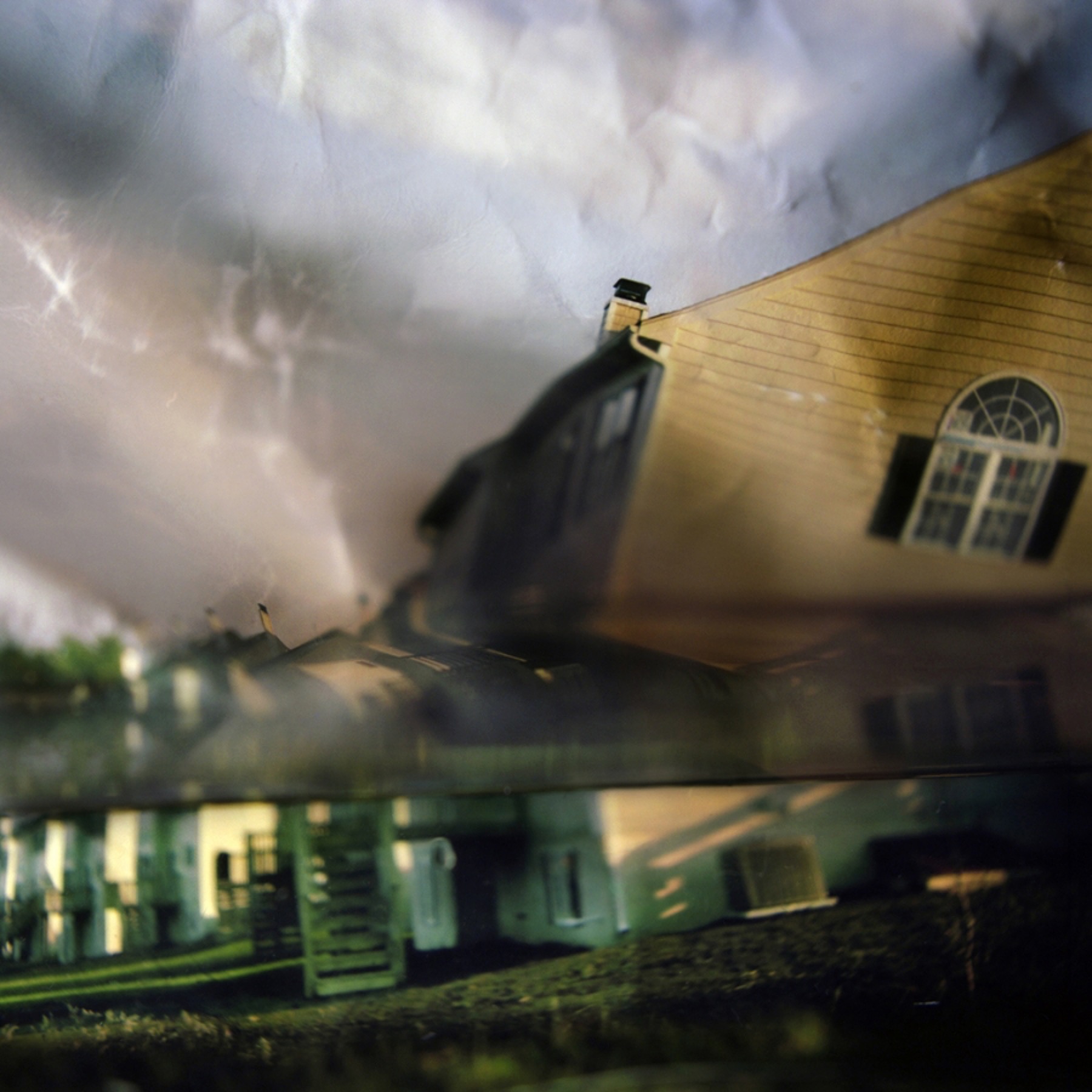
Night on Rand Avenue
By Bianca Lynne Spriggs
Two wasps copulate over your back porch—
their wings grate the air above the ochre splotch
where a hawk took down a pigeon last winter
not long after your move into the yellow house
with the purple door. The blood lingers, faint
against the painted brick as the condensation
of a fingerprint left on cold glass. After a year,
you’ve learned it doesn’t matter what hour you step
on the porch to drink in the heady weight of lilac
from two doors down; people and strays stay steady
catching road. There. Two brothers carry a big-screen
away from a neighbor’s house. There. Someone curses
at his friends half a block ahead to slow down.
You’ve learned who to not spare a word to.
Folks rarely look in your direction, nod, say hello.
You shift your weight, adjust the front of your shirt
to cover any hint of freckled breast. Children’s voices
and a terrier’s constant bark next door spill out
with the pools of light from your neighbor’s kitchen.
A cop rolls by, hammerhead slow. Then another.
Someone was shot across the street last month—
gunshots here have their own sort of tongues.
You even fell asleep to their staccato pulse last New Year.
You stay here because you can afford it. But in your mind
you’ve already left behind your sinking bathroom,
the leak in the ceiling, cracks scrawled across two walls
and the mélange that lives nearby.
Just last night, a paraplegic woman hauled herself
up your steps and knocked on your storm door,
her motorized wheelchair left abandoned in the middle
of the street. Once, before you knew better, you wanted
desperately to put down roots in the thin soil here,
to strengthen your artist’s bones against
the dense muscle of the ’hood in this yellow house
with the purple door across from the now empty lot
where Elizabeth Hardwick used to live. You fell in love
with the teal room, and the hardwood floors, and the church
choirs that compete each Sunday from either end of the street.
But the flickering streetlamps muddle the night, sheathe
each person and parked car in a translucent sepia haze.
Everyone you see is a haint. There. The boy with no shirt
who must stand to pedal on a too-large bike.
There. The men you can make out in the neighbor’s yard
beyond billowing trap music and smoke from a grill.
There. Two wasps, although distracted for the moment,
may at any point be poised to sting. You make no loud noises.
No sudden movements. You retreat indoors.
Enjoy this poem? Subscribe to the Oxford American.

